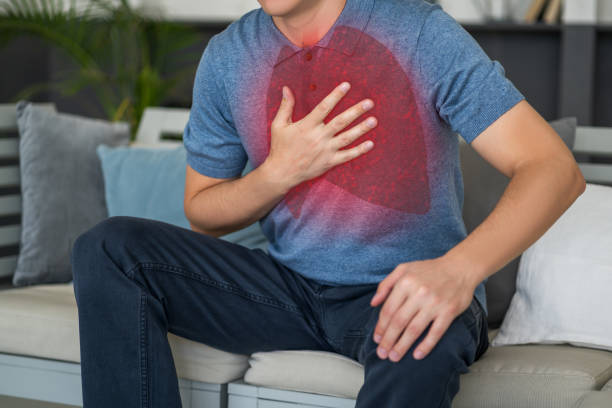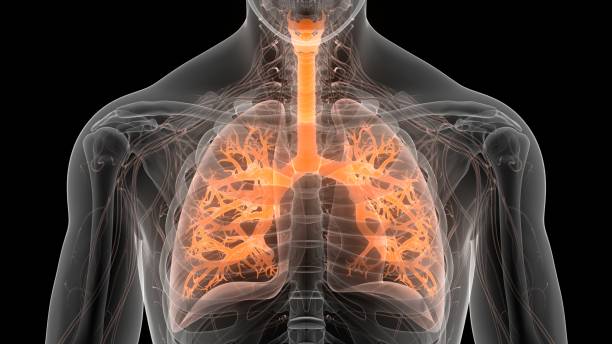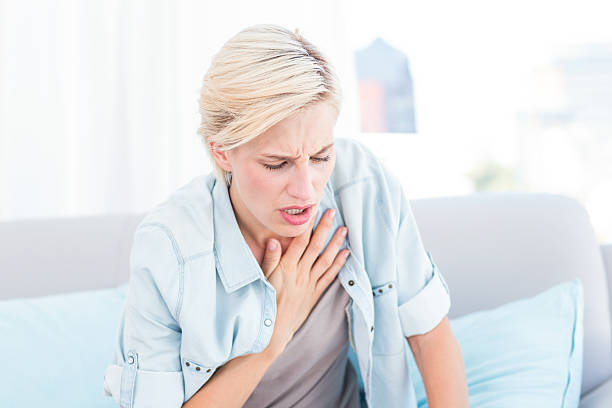Which vitamin deficiency causes shortness of breath Ever noticed how sometimes even climbing a few stairs makes you feel like you’ve just returned from running a 10k marathon Your heart races, your chest feels heavy, and you start wondering—“Am I aging too fast or just out of shape While it’s easy to blame our lazy Netflix lifestyle, the truth is, shortness of breath isn’t always about lack of exercise. Surprisingly, vitamin deficiency and shortness of breath are directly linked! Yes, your lungs and stamina depend not only on workouts but also on tiny nutrients that you probably underestimate.
This article is not just another boring medical blog—it’s going to be funny, relatable, and most importantly, helpful. We’ll uncover which vitamin deficiency makes you pant like a puppy, why weakness triggers breathlessness, and how simple foods (or even sunlight) can transform your breathing. Stick around till the end because we’ll also share when supplements become necessary and how to avoid mistakes people make with them. Ready Let’s dive in
Which Vitamin Deficiency Causes Shortness of Breath
The number one culprit behind shortness of breath due to vitamin deficiency is Vitamin D. Yes, the “sunshine vitamin” does much more than just keeping your bones strong. It’s like the backstage manager of your lungs, silently supporting their function. When your body doesn’t get enough Vitamin D, your lung capacity weakens, oxygen exchange slows down, and you start running out of breath even while doing small activities.
Research shows that Vitamin D deficiency can worsen conditions like asthma, chronic bronchitis, and even COPD. It also lowers your energy levels, making you feel fatigued all the time. So, if you find yourself huffing and puffing without much effort, it could be a clear sign that your Vitamin D tank is running on empty.
And here’s the fun part: You don’t even need to go to a pharmacy first—you just need to step into the sunlight. A free, natural medicine that not only brightens your mood but also improves your breathing. Sounds too easy, right? That’s the magic of Vitamin D

Can Weakness Really Cause Breathlessness
Many people confuse weakness with laziness. But weakness is your body’s SOS signal—telling you it doesn’t have enough energy or nutrients to function properly. Weakness often comes from deficiencies in iron, Vitamin B12, and yes, Vitamin D. When your muscles, including the lungs, don’t get enough nutrition, they can’t perform well. This is why even small activities make you tired and breathless.
Imagine trying to drive a car with very little fuel—would it run smoothly? Of course not! That’s exactly how your body feels without proper vitamins and minerals. Weakness forces your lungs and heart to work extra hard, and the result is—you start gasping for air sooner than you should.
So next time someone teases you for being out of shape when you’re breathless, you can confidently say, “Nope, I’m not lazy—I’m vitamin-starved!” Weakness isn’t just about low stamina; it’s a red flag that your nutrition needs urgent attention
Top 3 Causes of Shortness of Breath (Other Than Running for the Ice Cream Truck)
While Vitamin deficiency and shortness of breath are strongly connected, that’s not the whole story. Here are the top three common causes:
- Respiratory Issues – Asthma, bronchitis, pneumonia, and lung infections can restrict airflow, making you feel suffocated. These conditions inflame the airways, and every breath feels like a struggle.
- Allergies – Seasonal allergies or dust allergies can block your nose and throat, making it hard for oxygen to reach your lungs. Your body overreacts to harmless triggers like pollen, and your lungs pay the price.
- Vitamin and Mineral Deficiencies – Not just Vitamin D, but also deficiencies in Vitamin B12, Iron, and Magnesium can make oxygen delivery poor, leaving you breathless.
Funny enough, many people think they’re just “getting old” when in reality, they’re just low on essential nutrients. The next time you struggle with breathlessness, instead of panicking, ask yourself: Is it my lungs, my allergies, or simply my diet

Why Is Vitamin D So Important for Your Lungs
Think of Vitamin D as your lung’s invisible armor. It supports lung tissue, helps fight inflammation, and keeps your respiratory muscles strong. Without it, your lungs become like a tired balloon—unable to fully inflate and deflate. That’s why Vitamin D deficiency and shortness of breath go hand in hand.
But here’s where it gets serious: Long-term Vitamin D deficiency increases the risk of asthma attacks, chronic obstructive pulmonary disease (COPD), and frequent chest infections. It even lowers immunity, making you catch colds and flu more often.
On the positive side, when your Vitamin D levels are adequate, your lungs work more efficiently, oxygen circulates better, and you feel more energetic. You don’t need to become a marathon runner overnight, but you will notice daily activities becoming easier. In short, Vitamin D is not just about “strong bones”—it’s about stronger breaths
How to Overcome Vitamin D Deficiency Naturally
The good news is, Vitamin D deficiency is one of the easiest problems to fix. The number one natural source is sunlight. Spending just 10–15 minutes under the morning sun can give your body enough Vitamin D to kickstart healthy lung function. No gym, no complicated routine—just some sunshine love!
Apart from sunlight, here are some Vitamin D-rich foods you must include in your daily diet:
- Milk and dairy products like yogurt and cheese
- Egg yolks (sorry, no skipping this part!)
- Fatty fish like salmon and mackerel
- Chicken and meat
- Fortified cereals and orange juice
Adding these to your meals not only boosts Vitamin D but also keeps your overall stamina high. A balanced diet can turn your “out of breath” struggles into smooth, effortless breathing

When Do You Need Supplements
Sometimes diet and sunlight may not be enough, especially for people living in colder regions, working night shifts, or those who always avoid the sun (yes, sunscreen lovers, this is for you!). In such cases, doctors may recommend Vitamin D supplements.
But here’s the golden rule: Never self-medicate. Overdosing on Vitamin D can cause kidney stones, nausea, and even heart issues. Supplements are powerful but should always be taken under medical supervision.
If your blood tests reveal extremely low Vitamin D levels, supplements might be a lifesaver. They quickly restore your levels and reduce symptoms like weakness and breathlessness. So, when in doubt, check with your doctor instead of randomly popping pills from the pharmacy
Which Vitamin Deficiency Causes Dizziness Along With Breathlessness
Another interesting question is—what if breathlessness comes with dizziness? In that case, the likely culprit is Vitamin B12 deficiency. B12 plays a vital role in producing red blood cells, which carry oxygen throughout your body. When levels are low, oxygen delivery suffers, leaving you lightheaded and short of breath.
So while Vitamin D is the superstar for lungs, don’t forget Vitamin B12. Without it, you’ll feel like the world is spinning even while sitting still. That’s why a complete blood test is crucial—sometimes it’s not just one vitamin but a combination of deficiencies that trigger your symptoms
Don’t Ignore Shortness of Breath
Shortness of breath may sound like a minor issue, but it can be your body’s way of warning you about bigger problems. While Vitamin deficiency and shortness of breath are strongly connected (especially Vitamin D and B12), never assume that’s the only reason. Heart disease, lung infections, and even stress can play a role.
The smart move is to get yourself checked. A simple blood test can reveal your vitamin levels, and a doctor can guide you on whether you need lifestyle changes, diet upgrades, or supplements. Meanwhile, remember to enjoy your daily dose of sunlight, eat a balanced diet, and treat your body like the miracle machine it is
Beetroot juice can have these 8 side effects
Disclaimer
The tips and suggestions mentioned in this article are intended for general informational purposes only. Before starting any fitness program, making changes to your diet, or trying any remedies related to health conditions, please consult your doctor or a qualified healthcare professional. Dr. You does not verify or endorse the authenticity of any such claims made herein

